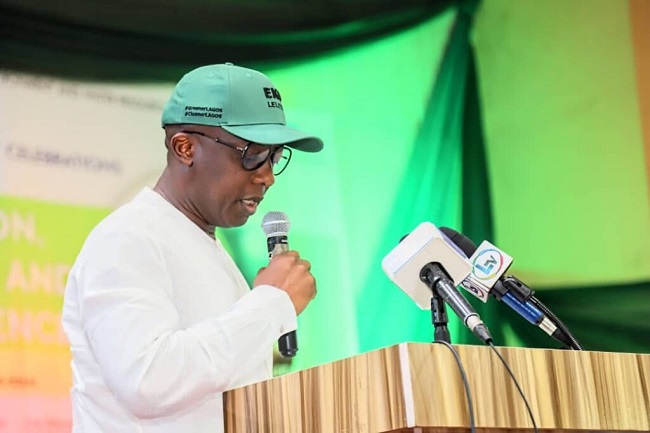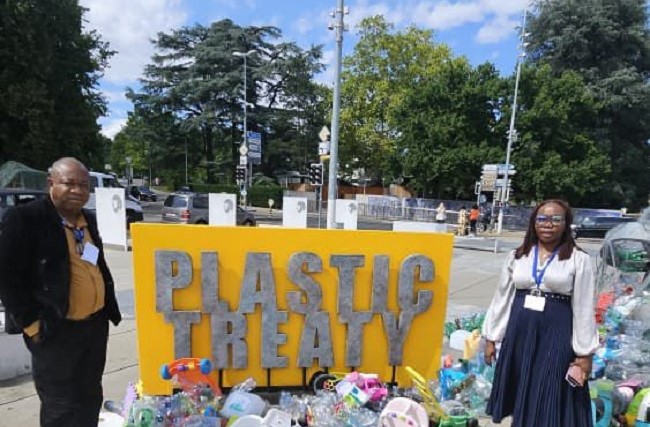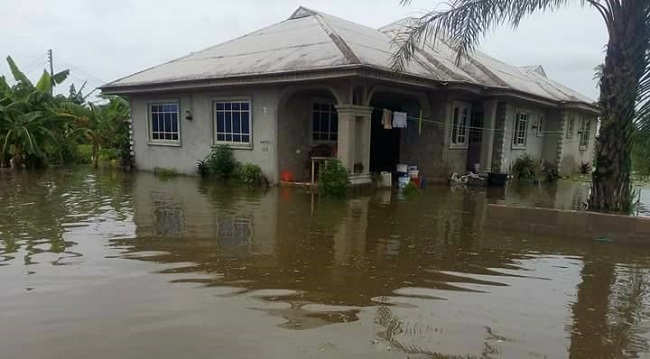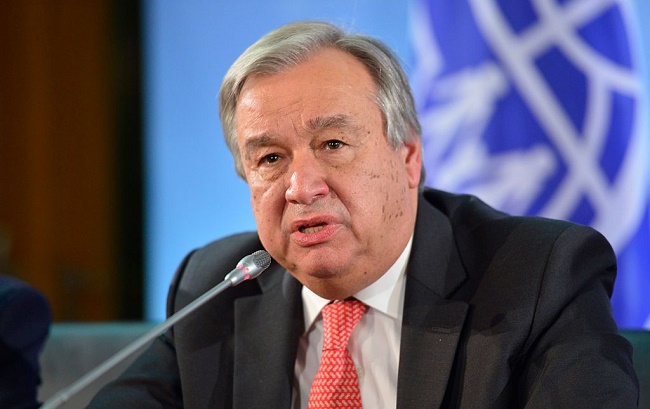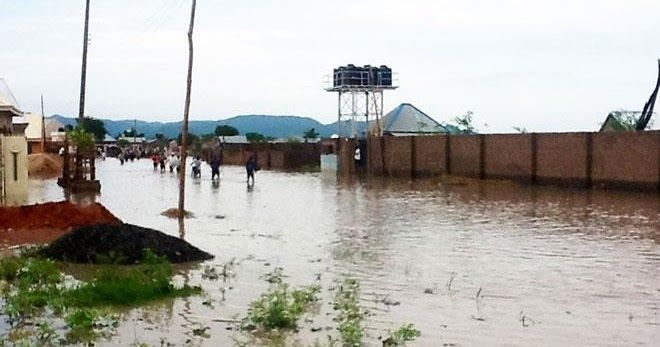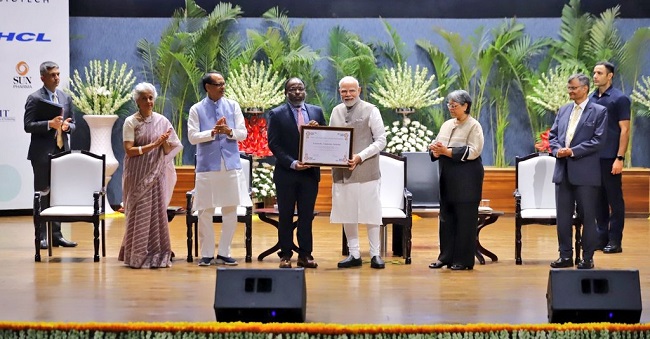TotalEnergies has said Nigeria’s present and future energy sustainability does not rest on just hydrocarbon but also human resources development.
This was revealed by the Deputy Managing Director, Deepwater Asset, TotalEnergies EP Nigeria, Victor Bandele, on Wednesday, August 6, while contributing to the theme “Governance and Structuring Human Resources Strategy for Sustainable Energy Future” on the 2nd panel of the just-concluded Society of Petroleum Engineers’ (SPE) 2025 Nigeria Annual International Conference and Exhibition (NAICE) held in Lagos.

During his presentation, Bandele referenced its graduate trainee programme in partnership with the Institute of Petroleum and Energy Studies (IPES), currently running at the University of Port Harcourt.
The company’s IPES is a programme focused on developing human capacity and equipping youth with skills for the oil and gas industry.
He said one of the pillars on which its more than 63 years of footprint in Nigeria’s oil and gas industry rests is the importance it attaches to human resource development.
According to him, sustainability in the company’s operations means deliberate inclusion of people as a means of meeting today’s energy requirements, while also preparing for future energy needs and targets.
“Over the years, TotalEnergies has kept the IPES alive through financial sponsorship. And as we speak, all our directors are mentors at the institute where graduates are trained as professionals. About 40 graduates of the school are currently employees of TotalEnergies, while others work in other companies in Nigeria.
“Some of them are even expatriates outside the country. This is because we believe so much in people, and we keep adapting learnings at the school to meet today’s energy challenges, while also preparing them for the future,” he said.
“At TotalEnergies, we believe that sustainability does not rest on only old knowledge. We also have to configure past knowledge to sustain us in the future, and that is why training youths must be at the heart of national development. The oil and gas industry must look inwards to see that youth are carried along.
“Our educational policies must be tied to energy transition because it is not the skills needed now that will be required in the future,” Bandele added.
While speaking earlier, Chairperson, SPE Nigeria Council, Amina Danmadami, said a sustainable energy future required a holistic approach that required intentional leadership.
“Nigeria has found itself at a crossroads where, through bold leadership, the energy landscape must be reshaped.
“The future of energy is neither here nor there. It is neither leaner nor predetermined. It will be shaped mainly by investments and sound leadership. It must be repositioned to be inclusive of all stakeholders and must be deepened through strategic engagements across boards and the globe,” she said.
The 2025 edition of SPE NAICE provided an expansive platform for knowledge-sharing, technical collaboration, and strategic foresight. It featured two high-level leadership panel sessions, over 80 exhibiting companies, and multiple tracks focused on gas monetisation, pipeline reliability, infrastructure optimisation, and digital transformation. Special attention was given to national priorities like asset divestment, local capacity development, and environmental stewardship.
Themed “Building a Sustainable Energy Future: Leveraging Technology, Supply Chain, Human Resources, and Policy”, the conference brought together industry regulators, upstream/midstream/downstream operators, financiers, oil/gas interest groups, the media, and industry observers, amongst others.
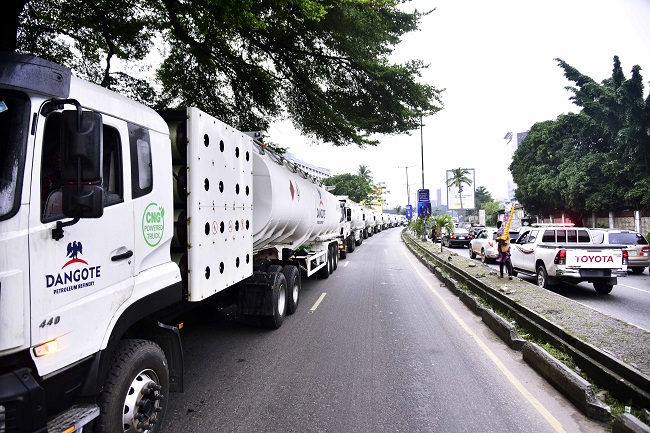
In a related development, Dangote Petroleum Refinery & Petrochemicals has commenced the receipt of 4,000 compressed natural gas powered trucks, an integral part of its fuel distribution logistics programme set to start on August 15.
The initiative aims to transform the fuel distribution landscape within Nigeria by reducing logistics costs and enhancing supply efficiency for customers.
The fleet of fuel tankers, being imported through Apapa Port, represents a significant capital investment estimated at N720 billion. This expenditure underscores the company’s commitment to pioneering innovative solutions as the world’s largest single-train refinery continues to expand its operational capabilities.
The first consignment of trucks recently departed Apapa Port and was formally received at the refinery site in Ibeju-Lekki by Vice-President of Oil and Gas at Dangote Industries Ltd, Devakumar Edwin. The arrival was met with enthusiasm from refinery personnel and customers alike, many of whom were present to witness the tangible progress towards improved fuel accessibility.
Members of the public who observed the convoy’s journey from Apapa to Ibeju-Lekki expressed commendation for Dangote’s proactive approach in addressing the chronic logistics challenges that have long impeded the downstream sector.
Speaking on the rollout, Group Chief of Branding and Communication, Dangote Industries Limited, Mr. Anthony Chiejina, provided further insights into the implementation strategy:
“The commencement of the initiative marks a groundbreaking development in Nigeria’s fuel distribution network. Given the complexities inherent in global supply chains, the delivery of these specialised CNG-powered tankers is indeed commendable. This approach ensures that we maintain operational efficiency while scaling up the fleet.
“Our unwavering commitment to this programme is reflected in our ongoing collaboration with key regulatory bodies and stakeholders to facilitate seamless deployment. We believe this initiative will significantly lower distribution costs and improve fuel availability for our customers nationwide.”
He added that over the next six weeks, the refinery expects at least 60 shiploads of these trucks to arrive in the country.
This innovative distribution model is expected to catalyse efficiency gains across Nigeria’s downstream petroleum sector, fostering greater transparency, reducing transportation bottlenecks, and ultimately enhancing energy security for the nation.
In June, Dangote Petroleum Refinery revealed a landmark investment exceeding N720 billion to deploy 4,000 Compressed Natural Gas (CNG)-powered trucks across Nigeria for the nationwide distribution of petroleum products. This bold initiative is projected to save Nigerians over N1.7 trillion annually in fuel distribution costs.
The privately owned refinery will absorb more than N1.07 trillion every year in fuel logistics expenses. The scheme is expected to significantly benefit over 42 million Micro, Small, and Medium Enterprises (MSMEs) by lowering energy costs and improving profitability.
This strategic programme is part of Dangote’s broader commitment to eliminating logistics bottlenecks, enhancing energy efficiency, promoting environmental sustainability, and supporting Nigeria’s economic development. Lower fuel distribution costs will reduce production expenses, alleviate inflationary pressures, and stimulate overall economic growth.
The initiative is also expected to revitalise dormant filling stations, creating over 15,000 direct jobs across the logistics value chain, including positions for drivers, station managers, and attendants at the new CNG stations.
Moreover, the refinery said that the programme would help curb cross-border smuggling of petroleum products while supporting a more efficient and environmentally friendly distribution system.
Commercial Coordinator of the Presidential Compressed Natural Gas Initiative (PCNGI), Tosin Coker, commended the move:
“Dangote Group’s acquisition of 4,000 CNG trucks is not only impressive in scale but also highly strategic,” he said. “It signals to the market that CNG is no longer a distant prospect but a current, practical solution to high energy costs, emissions, and supply chain challenges. PCNGI regards this as a milestone achievement in our efforts to accelerate gas-powered transport adoption.”

